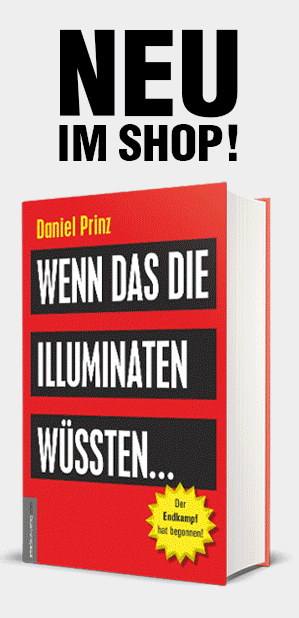Wird die Bank of Japan aus der Politik billigen Geldes aussteigen?
- „In recent years, the BoJ has been the most aggressive central bank, causing government bond yields to stay anchored close to zero across the curve, while acting as a ‚buyer of last resort‘ for equities by scooping up roughly three quarters of Japanese ETF shares. Yet, while equities have loved this intervention, Japanese insurers and banks have had a tougher time. Indeed, a chorus of voices is now calling for the BoJ to let the long end of the yield curve rise, if only to stop regional banks hitting the wall.“
– Fazit: Es ist ja kein neues Problem – insofern, wird die Notenbank es wirklich ändern.

Quelle: Gavekal
- „(…) the ‚short yen‘ trade is popular on the premise that the BoJ will be the last central bank to stop quantitative easing. But what if this isn’t the case? There are, after all, pros and cons to keeping an uber-easy monetary policy, as shown below.“
– Fazit: Das entscheidende Pro fehlt – die anhaltende Staatsfinanzierung erfordert weiteres QE.

Quelle: Gavekal
Wird die Inflation deutlich anziehen?
- „(…) we, as a firm, have taken a broadly deflationary view of the world. A key factor for this over the past 15 years has been excess manufacturing added by China, together with millions of workers leaving the countryside year after year to try their luck in cities. (…) But is the situation now changing?“
– Fazit: außer, es gelingt, die Arbeitskräfte in Afrika zu mobilisieren und zu qualifizieren. Denkbar.

Quelle: Gavekal
- „Very little went into manufacturing capacity, which may explain why the price of goods exports from China has, after a five-year period, shown signs of breaking out on the upside.(…) if China’s export prices do rise in a concerted manner, it will happen when inflation data in the likes of Japan, the US and Germany are moving northward.“
– Fazit: was dann natürlich die Zinsen treiben würde und damit die Finanzmärkte gefährden.


Quelle: Gavekal
Warum spielt Inflation eine Rolle?
- „The real reason I worry about inflation today is that inflation has the potential to seriously disrupt the happy policy status quo that has underpinned markets since the February 2016 Shanghai G20 meeting. (…) after a big rise in foreign exchange uncertainty – triggered mostly by China with its summer 2015 devaluation, but also by Japan and its talk of helicopter money, and by the violent devaluation of the euro that followed the eurozone crisis – the big financial powers acted to calm foreign exchange markets (…).“
– Fazit: Man könnte auch sagen, man hat den Abwertungswettlauf gestoppt – oder eine Pause eingelegt.
- „(…) the People’s Bank of China may well be the new Bundesbank (…) for a Chinese technocrat, the Tiananmen uprising of 1989 only happened because food price inflation was running at above 20%. For this reason, the one central bank that can be counted on to be decently hawkish against rising inflation, or at least more hawkish then others, is the PBoC.“
– Fazit: Das ist doch mal ein neuer Gedanke. Verstehe ich auch. Doch dann wäre es doch kein Inflationsproblem für China und die Welt, weil die Chinesen gegentakten. Und die chinesische Währung würde dann auf- und nicht abwerten, was auch gut wäre. Alles paletti also.
- Oder? „First, rising inflation would lead to lower valuations for most asset prices. Secondly, higher inflation would likely trigger a tighter monetary and fiscal policy in China. Thirdly, a tighter China threatens the cozy ‚Shanghai Agreement‘ which has prevailed since 2016. And how can one hedge against this threat? In 1987, bunds ended the year among the world’s best performing asset classes. Of course, history never repeats itself; but if it ends up rhyming, owning short-dated renminbi-denominated bonds may be an obvious ‘portfolio cushion’“.
– Fazit: warum eigentlich nicht. Allemal besser als Bundesanleihen.
Was macht die Fed?
- „In the first scenario, events unfold fairly predictably and the Fed stays on its promised path. In this case, global currency volatility stays muted (Fazit: denkbar). In the second scenario, the US embarks on a huge stimulus, prompting the Fed to tighten monetary policy aggressively (Fazit: halte ich für unwahrscheinlich). Meanwhile, other central banks continue to sit on their hands. is triggers big capital inflows from the rest of the world into the US and pushes the dollar higher. The third scenario sees the world experience some kind of shock (take your pick from a bad Italian election, a bank crisis in China, a Saudi-Iran war, a North Korea war or a political crisis in the US) and the Fed responds with more QE (Fazit: halte ich für eine echte Möglichkeit). Finally, the fourth scenario sees the Fed deliver the promised monetary policy tightening, but inflation accelerates and the rest of the world tightens more aggressively than expected (Fazit: unwahrscheinlich).“
- „In the first two scenarios, the US dollar will likely rise, either a little, or a lot. In the latter two scenarios, the dollar would likely be very weak. So if this analysis is broadly correct, shorting the dollar should be a good ‚tail risk‘ policy. If the global economy rolls over and/or a shock appears, the dollar will weaken. And if global nominal GDP growth accelerates further from here, the dollar will also likely weaken. Being long the dollar is a bet that the current investment environment is sustained.“
– Fazit: Hm, oder man hält einfach an einem diversifizierten Portfolio fest?
Ölpreis als Risiko
- „(…) funding these inventories takes money, which is how a US$20/barrel move in the oil price can have a big impact on the global liquidity situation. After all, if the price of oil is US$60/bbl, then oil inventories will immobilize around US$600bn in working capital. But if the price drops to US$40/bbl, then the working capital needs of the broader energy industry drops by US$200bn.“
– Fazit: Das leuchtet mir ein, war mir aber so nicht bewusst. Wir hätten also eine doppelte Wirkung auf die Liquidität, zum einen aus dem veränderten geldpolitischen Umfeld, zum anderen aus dem Ölpreis.
- „Simply put, the more money the Fed sucks out of the system, and the more that is tied up in the energy complex, the less is available to push up asset prices. On this score, it should be noted that excess money supply in the US is decelerating (see chart below).“
– Fazit: was aber klar gegen die Börse spricht.

Quelle: Gavekal
- „Should oil prices continue to rise, the resulting change in the liquidity situation could leave markets vulnerable. It follows that energy stocks may be a decent hedge for portfolios. (…) if oil prices do creep higher (…) then energy stocks will provide a buttressing effect against a very different investment environment.“
Weshalb Gavekal-Investoren sich folgende Fragen stellen sollten:
„1) Is the recent oil price breakout a sign of more strength to come? (…) I am inclined to own energy stocks as a hedge against a further rise in oil prices; a rise which will suck up excess liquidity and so cap gains in hitherto ‚hot‘ asset classes. I also like energy stocks as a hedge against a big geopolitical shock as I worry that Saudi and Iran are one big terrorist event away from going at each other’s throats.“
– Fazit: Das wäre in der Tat ein schlechtes Signal für alle Märkte, weil bei einem solchen Schock die Wirtschaft in eine Rezession fällt. Ob da die Ölaktien noch helfen?
„2) Will inflation surprise on the upside in 2018? (…) everyone in every investment committee meeting these days is a deflationist. (…) Which probably means that the ‚deflation forever‘ thesis is, by now, most likely fully baked into most asset prices? (…) It should also be acknowledged that since the eurozone crisis of 2011-12 few modern economies have added much productive investment capacity. (…) So if global growth continues on its current synchronized path, isn’t the risk that this lack of investment in new capacity ends up causing demand to outstrip supply? If so, then a sell-off in global bond markets is likely, along with all long- dated assets (especially growth stocks with limited profits). Fortunately, hedging against such an event is fairly easy as financials around the world should, in this eventuality, see steeper yield curves rapidly translate into better profits.“
– Fazit: Aber was ist mit den steigenden Ausfällen, weil die Zombies dann nicht mehr können?
„(3) Will China tighten more aggressively in 2018? (…) the most obvious hedge would be Chinese government bonds, denominated in renminbi, yielding 4%. In case of further Chinese tightening, such bonds may be as useful to portfolios as bunds were in 1987.“
– Fazit: wie oben schon geschrieben, nicht von der Hand zu weisen.
„(4) Will Japan tighten monetary policy? (…) at some point policymakers will need to be seen doing ‚something‘ in response to the bitcoin mania. The second is that Japan tends to play ball with American requests and [though] a mercantilist president wants wins on trade, that won’t be easy with an under-valued yen. The third is that regional banks are starting to really struggle, with the simplest fix being a yield curve steepening. (…) investors (…) should (i) remove yen hedges/short positions, (ii) rotate equity portfolios from high flying exporters to long-suffering domestic financials and (iii) press bets on Japanese domestic real estate.“
– Fazit: Ich zögere, weil ich an die hohen Staatsschulden denke, die zunächst monetarisiert werden müssen.
„(5) Will the Fed continue to tighten monetary policy? (…) loose fiscal policy and tight money typically trigger a de-rating of equity markets. And this is the policy mix we seem to be heading towards.“
– Fazit: Kann sein, auch hier bin ich skeptisch. Aber darin liegt ja gerade der Wert abweichender Meinungen.
„(…) investors who answered yes to the above questions may want to start building cushions in their portfolios against shocks. These cushions may be a greater exposure to energy stocks, financial stocks, renminbi bonds, the yen, rotating away from US growth stocks and towards value stocks, or simply buying puts on US equities.“
– Fazit: in sich eine konsistente Logik.
→ Gavekal: „The questions for the coming year“, 15. Dezember 2017






























